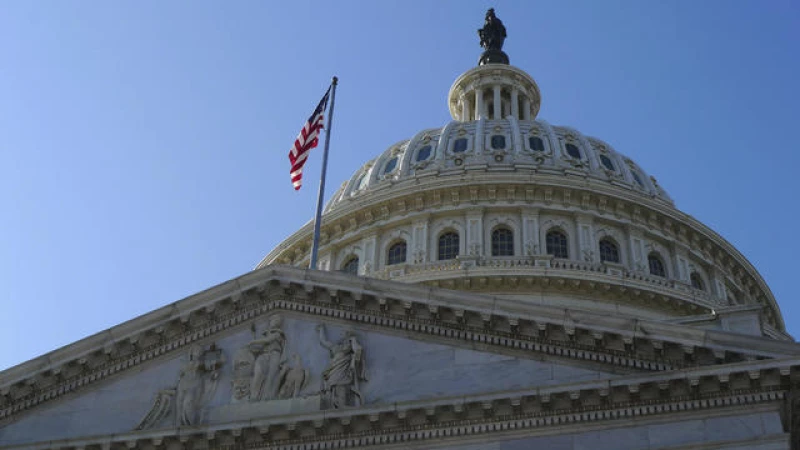The scandal surrounding New Jersey Democratic Sen. Bob Menendez — which involves accusations of receiving gifts and money in exchange for official actions — has sparked a bipartisan effort in Congress to enhance federal anti-corruption laws.
"It is crucial that public servants are held accountable to the highest ethical and legal standards, rather than being shielded from them," stated Craig. "The situation with Senator Menendez serves as a pressing reminder of the dangers posed by inadequate bribery laws to our democracy and national security. Our bipartisan legislation aims to rectify this by ensuring that officials who misuse their positions can face consequences."
As per Craig's office, the proposed legislation is named the Gifts for Officials, Legislators and Delegates (GOLD) Standard Act, a direct criticism of Menendez, who was leading the Senate Foreign Relations Committee at the time of his initial indictment.
The most recent superseding indictment against Menendez reiterated allegations the senator and his wife had "over one hundred thousand dollars' worth of gold bars" tied to the bribery allegations and also later allegedly trying to sell gold bars. They've been accused of accepting payments and gifts in exchange for meeting with foreign leaders, securing a business deal for a codefendant and working to disrupt prosecutions.
Both Menendez and his wife, Nadine, have pleaded not guilty to the charges, which include bribery and conspiracy. The New Jersey Democrat has denied wrongdoing and called the indictment "a flagrant abuse of power" as multiple challengers vie for his seat in the 2024 election.
Bribery law prohibits public officials from accepting bribes or gifts in exchange for an official act. The statute under Title 18, Section 201 (a)(3) of the U.S. code defines an official act as "any decision or action on any question, matter, cause, suit, proceeding or controversy, which may at any time be pending, or which may by law be brought before any public official."
The new bipartisan bill seeks to expand that definition to include the "approval, disapproval, recommendation" and "rendering of advice, or investigation" related to any pending issue that may come before federal officials over the course of their work.
Menendez's Senate office did not respond to requests for comment on the bill.
The coalition behind the proposed law is an unusual one. Craig is a battleground district Democrat from Minnesota who has called for ethics reforms on Capitol Hill. Mace was one of eight Republicans who voted to oust former GOP Speaker Kevin McCarthy last fall.
"By cosponsoring this bill, we aim to close loopholes and strengthen the definition of 'official act,' ensuring that public officials, no matter who, are held accountable for their actions and restoring faith in the integrity of our democracy," Mace's office said in a statement.
The bill will likely face a difficult path in the House during this election year. Since McCarthy was ousted as speaker, the Republican majority in the House has faced challenges in passing major legislation. Menendez's son represents a New Jersey House district.
The proposed law comes after a 2016 Supreme Court decision that adopted a "more limited definition" of an official act. In an 8-0 ruling, the high court vacated the conviction of former Virginia Gov. Bob McDonnell, who was accused of taking bribes from a wealthy businessman in exchange for promoting his business.
The court ultimately ruled that the "official acts" prosecutors alleged McDonnell took — including setting up a meeting and organizing an event without any further actions — did not fall within the proper meaning of bribery under federal law. The Justice Department dropped the case months later.
The recent decision by the Supreme Court has raised questions about the scope of the bribery statute, specifically regarding less concrete actions by government officials.
While the Justice Department's Public Integrity Unit, responsible for prosecuting federal bribery charges, chose not to comment on the proposed legislation, Maria Cruz Melendez, a former federal prosecutor, emphasized the importance of clarity in criminal statutes for all stakeholders involved.
Despite the impact of the McDonnell decision on federal prosecutors' cases, Melendez highlighted that the presentation of evidence and jury instructions have evolved to align with the law and ensure a fair trial.
As a partner at the law firm Skadden, Melendez cautioned that changes to criminal statutes could lead to conflicting outcomes, sparking further debate and uncertainty.
"Expanding the list of official acts could potentially result in an increase in prosecutions," Melendez expressed. "The use of new language may introduce additional ambiguity, leading to further litigation," she added.
Remaining neutral on the proposed legislation, Melendez pointed out that new language provides defendants with opportunities to challenge the boundaries and raise new legal issues for future court decisions.
"While a clear and detailed statute is preferable, disagreements over the interpretation of terms are inevitable even with the best efforts," Melendez concluded.







